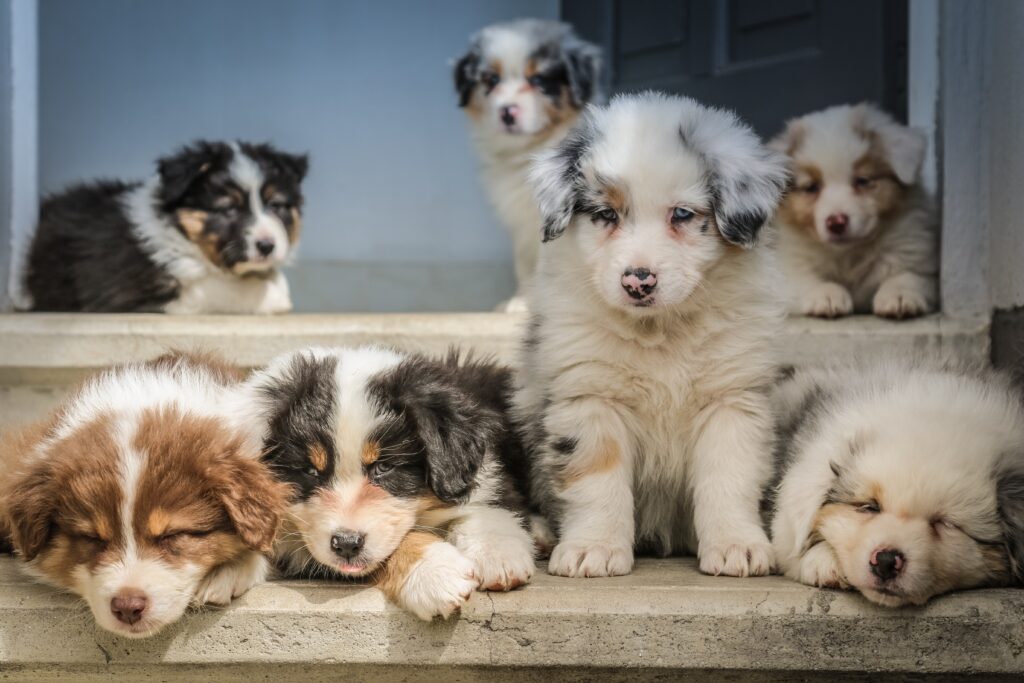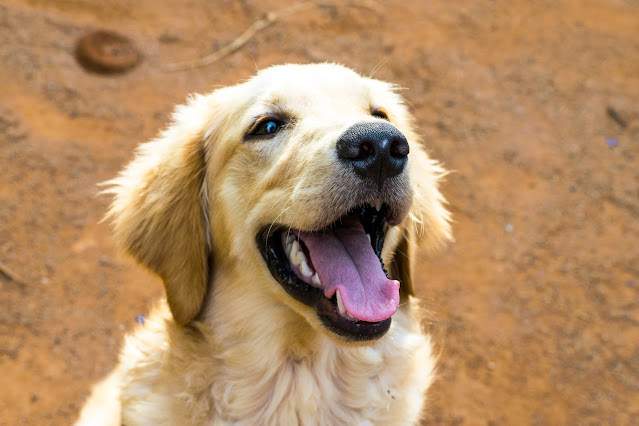Is It Important To Socialize My Dog With Other Dogs

Is It Important To Socialize My Dog With Other Dogs: You’ve just brought home a new furry friend, and you can’t wait to see them grow into a well-behaved and confident companion. But have you thought about the importance of socializing your dog with other dogs? While it may seem like a simple concept, dog-to-dog socialization plays a crucial role in shaping your dog’s behavior and overall well-being. But why is it so important? And how can you effectively socialize your dog?
In this discussion, we’ll explore the benefits of dog-to-dog socialization, the reasons behind its significance, and practical tips to ensure a positive and successful socialization experience for your furry companion. So, let’s embark on this journey together and discover why socializing your dog with other dogs is an essential aspect of their development.
Benefits of Dog-To-Dog Socialization
Dog-to-dog socialization offers numerous benefits for the mental and physical well-being of dogs. When dogs socialize with other dogs, they receive mental and physical stimulation, which is essential for their overall health. Playing and interacting with other dogs provides an outlet for their natural instincts and helps in developing good manners. Dogs learn to communicate effectively through their own language of sounds, gestures, and social cues during play, improving their social skills.
One of the primary benefits of dog-to-dog socialization is the opportunity for dogs to engage in vigorous exercise. Playing with other dogs offers a fantastic workout that cannot be replicated at home. This physical activity helps dogs to burn off excess energy and maintain a healthy weight. Regular exercise also promotes cardiovascular health and strengthens muscles, leading to a longer and happier life.
Moreover, socializing with other dogs builds confidence and comfort in dogs when faced with new and unexpected situations. By exposing them to different environments and interactions, dogs become more adaptable and resilient. This increased confidence allows them to handle various stimuli, such as loud noises or unfamiliar surroundings, without fear or anxiety.
Why Socialization Is Crucial for Dogs
Socialization is crucial for dogs due to the numerous benefits it provides. When dogs are properly socialized, they learn to interact with other dogs in a positive and non-threatening manner, which can prevent aggressive behaviors and conflicts. Additionally, socialization helps dogs develop good communication skills, build confidence, and adapt to new environments. On the other hand, not socializing dogs can lead to fear, anxiety, and aggression towards other dogs, making it essential for dog owners to prioritize socialization to ensure their pets’ well-being.
Benefits of Socialization
Socializing your dog with other dogs is crucial for their overall well-being and development. Meeting new dog owners and engaging in social interaction with other dogs offers numerous benefits. One of the primary advantages is that playing with other dogs provides a fantastic workout.
This social playtime helps dogs develop good manners by learning appropriate behavior, such as taking turns and understanding boundaries. Furthermore, socialization exposes dogs to new places and environments, which builds their confidence and comfort with the new and unexpected. Dog-on-dog play also offers vigorous exercise that cannot be replicated at home. Additionally, it provides an opportunity for dogs to bond with their canine peers, leading to potential play dates and lasting friendships. In conclusion, socializing your dog with other dogs is essential for their mental and physical well-being.
Risks of Not Socializing
After considering the benefits of socializing your dog with other dogs, it is important to recognize the risks associated with not providing this crucial form of interaction. Lack of socialization can have detrimental effects on your dog’s behavior and overall well-being. Dogs not socialized may develop anxiety, aggression, and fearfulness, making it difficult for them to navigate new situations and interact with unfamiliar animals and people. They may also struggle with proper exercise and mental stimulation, leading to boredom and frustration.
Additionally, unsocialized dogs may exhibit poor manners and behavior around other dogs and people, making it challenging to engage in activities such as visiting a dog park or meeting new people. By socializing with your dog, you can help them build confidence, adaptability, and positive social skills necessary for a happy and well-rounded life.
How to Socialize Your Dog Effectively
To effectively socialize your dog, it is crucial to start early and gradually expose them to new experiences, people, and animals, allowing them to become confident and friendly. Socializing your dog is essential for their overall well-being and helps them learn how to react to the world around them. By exposing your dog to different environments, sounds, and smells, you can reduce fear and anxiety, making your dog better equipped to handle new situations.
One important aspect of socialization is introducing your dog to other dogs. Meeting new dogs provides an opportunity for your dog to learn important social skills and establish positive relationships with their canine counterparts. During social time with other dogs, it is important to supervise the interactions to ensure they are positive and safe. This can help prevent any potential aggressive behavior and allow your dog to have a pleasant experience.
Positive reinforcement plays a vital role in socializing your dog effectively. Rewarding good behavior during socialization sessions will reinforce positive associations and encourage your dog to continue behaving well. This can include giving treats, verbal praise, or even a favorite toy. By using positive reinforcement, you are creating a positive association with meeting new dogs and making social time an enjoyable experience for your dog.
If your dog shows signs of anxiety, aggression, or fearfulness during socialization, it is important to seek guidance from a veterinarian or professional trainer. They can provide expert advice and help address any issues that may arise during the socialization process. Remember, the goal is to make your dog feel comfortable and confident in various social situations.
Tips for Introducing Your Dog to Other Dogs
When introducing your dog to other dogs, it is important to follow certain guidelines to ensure a successful and positive interaction. Taking your dog to new situations where they can meet new dogs is an essential part of their socialization process. However, it is crucial to approach these introductions with caution and sensitivity to your dog’s needs.
First and foremost, it is important to gauge your dog’s comfort level around other dogs. If your dog displays fear or aggression towards unfamiliar canines, it is advisable to seek the help of a professional dog trainer or behaviorist. They can guide you through the process and provide techniques to help your dog become more comfortable around other dogs.
When introducing your dog to a new dog, it is essential to set up a controlled and neutral environment. Choose a location where both dogs can interact without feeling territorial or threatened. Keep the initial meeting short and supervised, gradually increasing the duration as the dogs become more comfortable with each other.
Pay close attention to the body language of both dogs during the introduction. Look for signs of fear or aggression, such as raised hackles, growling, or snapping. If either dog displays these behaviors, it is crucial to separate them immediately to prevent any harm.
It is also important to allow the dogs to interact at their own pace. Avoid forcing them into close proximity or overwhelming them with excessive physical contact. Give them space to sniff and observe each other, allowing them to establish a positive association.
Common Challenges in Dog Socialization
When it comes to socializing dogs with other dogs, there are some common challenges that you may encounter. One of these challenges is fear and aggression, which can be overcome with proper training and positive experiences. It is important to provide dogs with positive interactions and experiences to help them develop good social skills and reduce any fear or aggression they may have.
Benefits of Dog Socialization
Dog socialization offers numerous benefits for both dogs and their owners, despite the common challenges that may arise during the process. One of the key benefits is the reduction of fear and anxiety in dogs. By exposing them to different social situations and interactions with other dogs, they become more confident and less prone to fear-based behaviors.
Socialization also helps dogs to make new friends and build positive relationships with other dogs. This is particularly important when taking your dog on walks or to public places, as a well-socialized dog is more likely to behave calmly and interact appropriately with other dogs. Additionally, socialization provides dog owners with the opportunity to spend quality time with other dog owners, fostering a sense of community and support. Overall, the benefits of dog socialization are undeniable and can greatly enhance the well-being of both dogs and their owners.
Overcoming Fear and Aggression
To effectively address the common challenges of fear and aggression in dog socialization, it is crucial to understand that professional consultation may be necessary for dogs exhibiting anxiety, aggression, or extreme fear. Seeking guidance from a vet or dog trainer can help develop a tailored socialization plan for dogs displaying fear or aggression towards other dogs. Gradual exposure and positive reinforcement are key to overcoming these challenges. Make sure to utilize controlled environments, such as dog daycares, to facilitate positive social interactions and build confidence in dogs struggling with fear and aggression.
Consistent, patient, and positive socialization efforts can help dogs overcome these issues, leading to improved behavior and overall well-being. Basic training techniques, along with professional guidance, can make a significant difference in helping your dog overcome fear and aggression.
Importance of Positive Experiences
To address the common challenges of fear and aggression in dog socialization, it is crucial to understand the importance of positive experiences as a means of promoting successful interactions between dogs. Providing your dog with positive experiences over time will help him learn how to play with other dogs and develop healthy social skills.
Positive experiences involve creating an environment where your dog feels safe and comfortable, allowing him to gradually interact with other dogs in a controlled and positive manner. These experiences can include supervised playdates, attending obedience classes, or participating in organized dog socialization events. By exposing your dog to positive interactions with other dogs, you are helping him build confidence, learn appropriate behaviors, and establish positive associations with socializing. Remember, positive experiences play a vital role in shaping your dog’s social skills and overall well-being.
Resources for Further Assistance in Dog Socialization
For effective implementation of dog socialization, it is crucial to seek professional guidance and utilize various resources available. Particularly important for owners with a new dog, these resources can help provide the necessary assistance and support needed to ensure a positive socialization experience.
One resource that can be highly beneficial is consultation with a veterinarian or professional dog trainer. If your dog is struggling with anxiety, aggression, or extreme fearfulness, it is important to address these issues before attempting to socialize them. These professionals can provide guidance on how to manage these behaviors and create a safe environment for socialization.
Doggy daycares can also be a valuable resource for socialization. These facilities offer controlled interactions with other dogs and provide a structured environment for your dog to learn proper social skills. The trained staff members at these daycares can provide supervision, mental stimulation, physical exercise, and emotional support, all of which are essential for a well-socialized dog.
In addition to professional help, there are also various ways you can practice socialization on your own. Puppy playdates, visits to dog parks, walks in public places, and gradual exposure to new experiences can all contribute to your dog’s social development. However, it is important to educate yourself on the proper techniques and seek guidance from professionals to ensure a positive and safe socialization process.
Is It Important To Socialize My Dog With Other Dogs Frequently Asked Questions
Do Dogs Really Need to Socialize With Other Dogs?
Yes, dogs need to socialize with other dogs. It provides numerous benefits such as improved behavior and communication skills. For shy dogs, start with small, controlled interactions. Find playmates that match your dog’s energy level. If your dog has health issues, consider alternative forms of socialization. Lack of socialization can negatively impact a dog’s behavior.
What Happens if a Dog Is Not Socialized?
Without socialization, your dog may experience a range of consequences including behavioral issues, fear aggression, and a lack of communication skills. They may also miss out on valuable opportunities for learning and growth.
Is It Bad if My Dog Doesn’t Interact With Other Dogs?
Not interacting with other dogs can lead to potential behavioral issues, lack of social skills, increased anxiety and fearfulness, difficulty adjusting to new environments, and missed opportunities for exercise and stimulation.
Do I Need to Let My Dog Play With Other Dogs?
Yes, it is crucial to let your dog interact with other dogs. Socialization benefits dogs by improving their communication skills, reducing aggression, and preventing behavioral issues. Introduce dogs slowly, address challenges, find suitable playmates, or consider alternatives like doggy daycare or playdates.
Conclusion
In conclusion, socializing your dog with other dogs is of utmost importance for their overall well-being and behavior. Through socialization, dogs develop good manners, build confidence, and become comfortable with new situations. It provides mental and physical stimulation and allows dogs to learn proper dog manners and communication. Regular socialization reduces the risk of aggressive behavior and helps dogs react to the world healthily and confidently. Ensuring your dog’s socialization is essential for their overall happiness and positive behavior.








